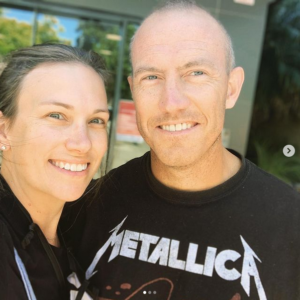“As an athlete I thought I had a pretty reasonable respect for fatigue and managing your body through exhaustion. This has taken that appreciation to a whole new level.”
Frank Hegerty is a former Australian rower, National Champion and a dual Olympian and Olympic Silver medalist. He is also living with lymphoma.
Frank shares his patient story with us in the lead up to Legs Out for Lymphoma this March, of which he is an ambassador.
“Please remain vigilant with your health. Take steps to look into niggles and ailments and form a relationship with your GP. We are not always bulletproof.”
We are very happy to add a positive update – as of last week Frank is in remission! The next step is to undergo a course of radiation.


